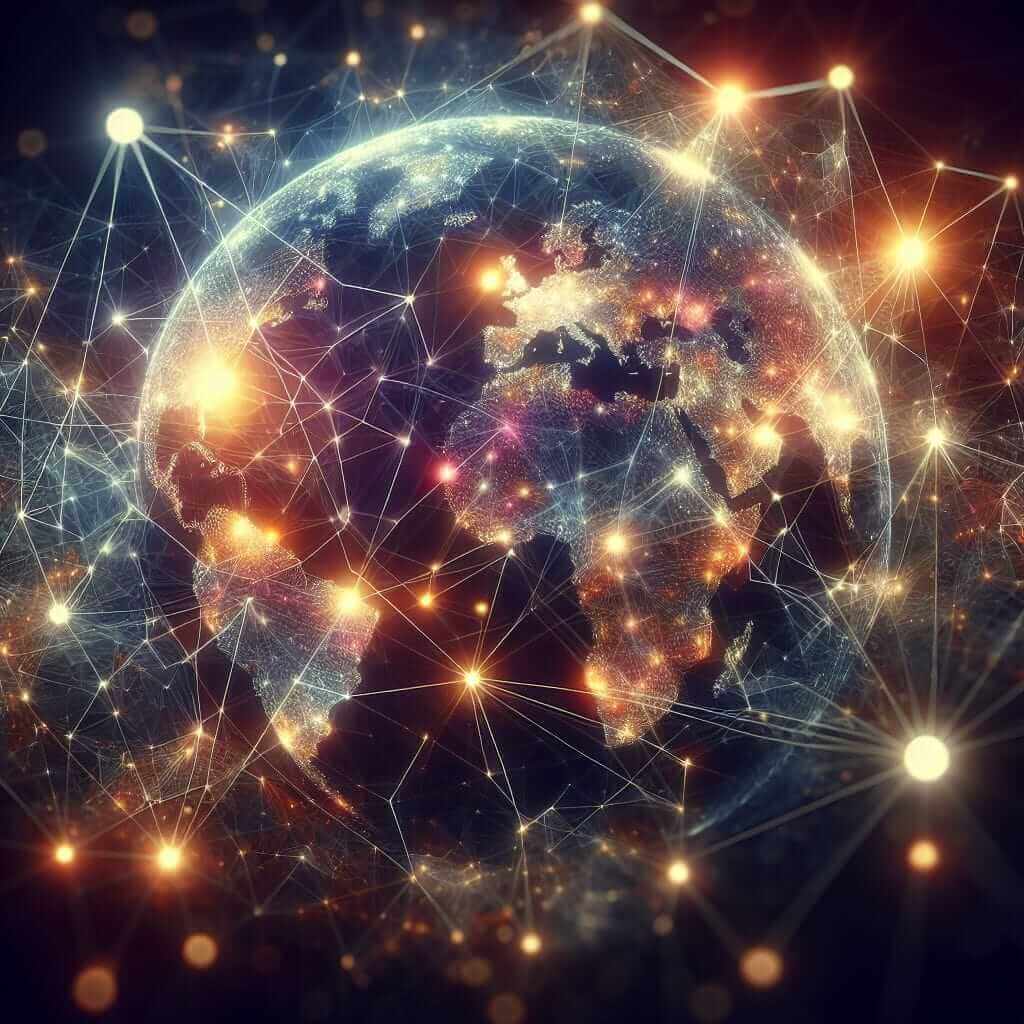The Reading section in the IELTS, encompassing three passages with varying degrees of difficulty, is designed to measure your ability to understand and analyze written English. With the rise of technology influencing our lives, topics such as blockchain technology have become increasingly relevant. They are not only timely but also provide rich content for IELTS Reading passages. Given its growing importance, the topic “How is blockchain technology influencing global governance?” could potentially appear in future exams. Let’s dive into a detailed passage on this topic to help you prepare.
Main Content
Reading Passage
How Blockchain Technology is Influencing Global Governance
Blockchain technology, initially developed as the underlying structure for cryptocurrencies like Bitcoin, has evolved significantly over the past decade. Its potential extends far beyond digital currencies, permeating multiple sectors, including global governance. The decentralized, secure nature of blockchain is poised to reshape the traditional modes of governance, offering new ways to manage data, enforce contracts, and increase transparency.
-
Decentralization and Transparency
One of the most significant advantages of blockchain technology is decentralization. Traditional governance structures are often centralized, with a single entity or a group controlling the information flow and decision-making processes. In contrast, blockchain operates on a distributed ledger system where every participant has access to the same information. This transparency can dramatically reduce corruption and increase trust among citizens and governments. -
Smart Contracts
Smart contracts are self-executing contracts with the terms of the agreement directly written into code. These contracts automatically execute transactions when the agreed conditions are met, eliminating the need for intermediaries. This capability can streamline bureaucratic processes, reduce the potential for human error, and ensure that agreements are honored promptly. -
Secure Voting Systems
Blockchain can transform the voting process by providing a secure, tamper-proof mechanism for casting and counting votes. This technology can eliminate election fraud and increase voter confidence in democracies worldwide. Various countries are already piloting blockchain-based voting systems to test their efficacy and security. -
Data Management & Security
Accurate and secure data management is a cornerstone of effective governance. Blockchain ensures that data cannot be altered once entered into the system without changing all subsequent blocks, thus providing an immutable record. It can help in safeguarding sensitive information, such as healthcare records and personal identification, from breaches and unauthorized access.
How Blockchain Technology Can Influence Specific Areas
Blockchain’s impact on global governance isn’t just theoretical; several real-world applications are already making waves.
-
Supply Chain Management
By providing a transparent ledger of transactions, blockchain can enhance the traceability of products from manufacturers to consumers. This transparency is crucial in maintaining the integrity of goods and combating counterfeit products. -
Judicial Systems
The blockchain’s ability to provide a transparent, unalterable record of legal proceedings can increase the efficiency and fairness of judicial processes. Smart contracts can also automate the execution of legal decisions, ensuring timely justice. -
International Trade
Blockchain can simplify the complexity of international trade by automating customs processes, reducing paperwork, and ensuring that all parties have access to the same information. This can lead to faster, more efficient global trade systems.
Questions
Multiple Choice Questions
-
What is one significant advantage of blockchain technology in governance?
a. Centralization
b. Transparency
c. High cost
d. Lack of security -
How can blockchain improve voting systems?
a. By adding intermediaries
b. By increasing election fraud
c. By providing a secure, tamper-proof mechanism
d. By complicating the voting process -
Which of the following is NOT mentioned as a benefit of smart contracts?
a. Streamlining bureaucratic processes
b. Reducing human error
c. Delaying transactions
d. Ensuring that agreements are honored promptly
True/False/Not Given
-
Blockchain technology was initially created for managing traditional banking.
True / False / Not Given -
Some countries are currently testing blockchain-based voting systems.
True / False / Not Given -
Smart contracts require human intervention to execute transactions.
True / False / Not Given
Summary Completion
Complete the following summary with words from the passage:
Blockchain’s decentralized nature increases __ (1) by providing all participants with the same information. Smart contracts, which are __ (2) agreements written in code, execute transactions without intermediaries. Blockchain can also transform __ (3) systems, ensuring secure and tamper-proof voting processes.
Answer Keys
Multiple Choice Questions
- b. Transparency
- c. By providing a secure, tamper-proof mechanism
- c. Delaying transactions
True/False/Not Given
- False
- True
- False
Summary Completion
- transparency
- self-executing
- voting
Common Mistakes
- Misinterpreting Information: Ensure you fully understand the passage before answering.
- Overlooking Keywords: Pay attention to keywords in both the questions and the passage.
- Imprecise Answers: Provide precise and concise answers, avoiding unnecessary information.
Vocabulary List
- Decentralization (noun) /ˌdiːˌsentrəlaɪˈzeɪʃən/ – The transfer of control from a single entity to multiple entities.
- Immutable (adj) /ɪˈmjuːtəbl/ – Unchanging over time or unable to be changed.
- Transparency (noun) /trænsˈpærənsi/ – The quality of being open and honest; easy to understand and see through.
Grammar Focus
-
Passive Voice: Used to focus on the action rather than the subject.
- Example: “Data cannot be altered once entered into the system.”
-
Relative Clauses: Used to provide additional information about a noun.
- Example: “Smart contracts are self-executing contracts with the terms of the agreement written into code.”
Tips for High IELTS Reading Scores
- Practice Regularly: Engage with reading passages daily to improve speed and comprehension.
- Familiarize with Different Question Types: Understand the various types of questions (e.g., True/False/Not Given, Multiple Choice).
- Skimming and Scanning: Develop the ability to quickly locate information and get the gist of the passage before diving deeper.

For individuals aiming for a high score in the IELTS Reading section, comprehending complex topics like blockchain and its implications on global governance can offer both a challenging and rewarding experience. Analyze the provided passage, tackle the questions thoughtfully, and keep practicing!